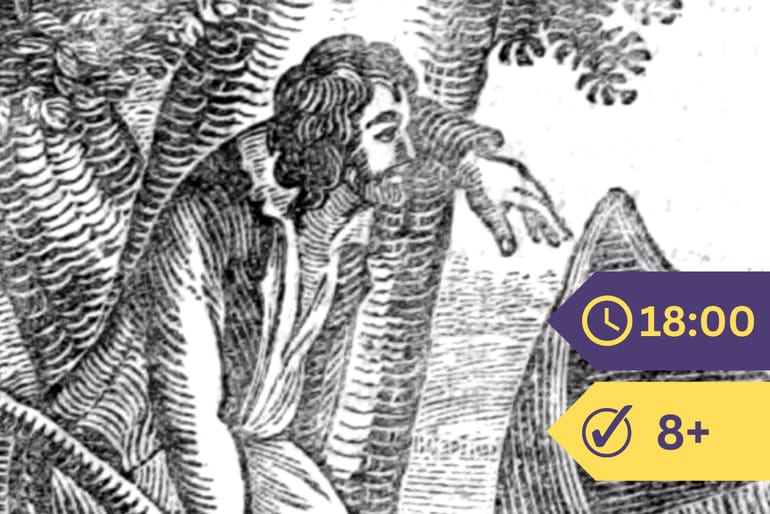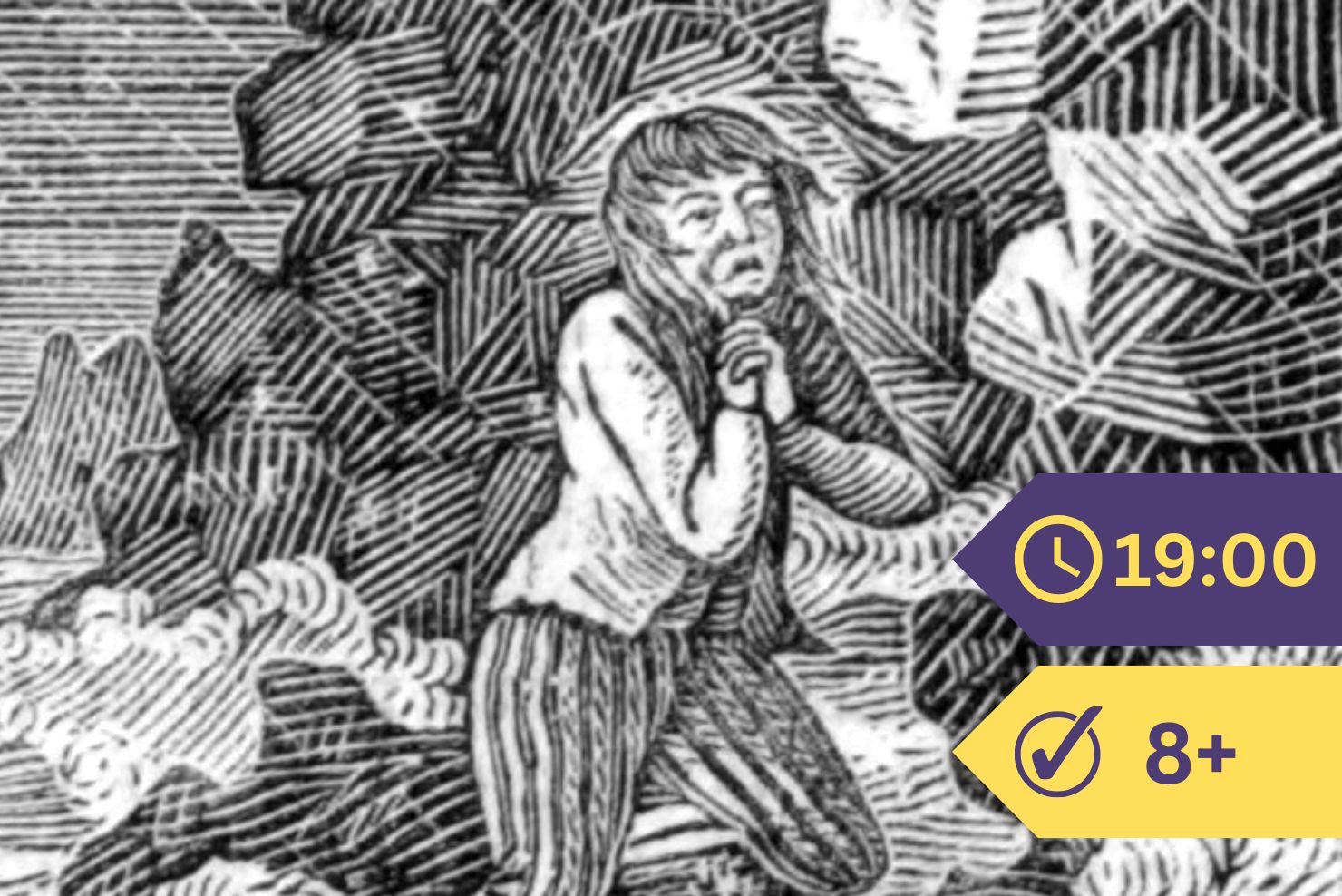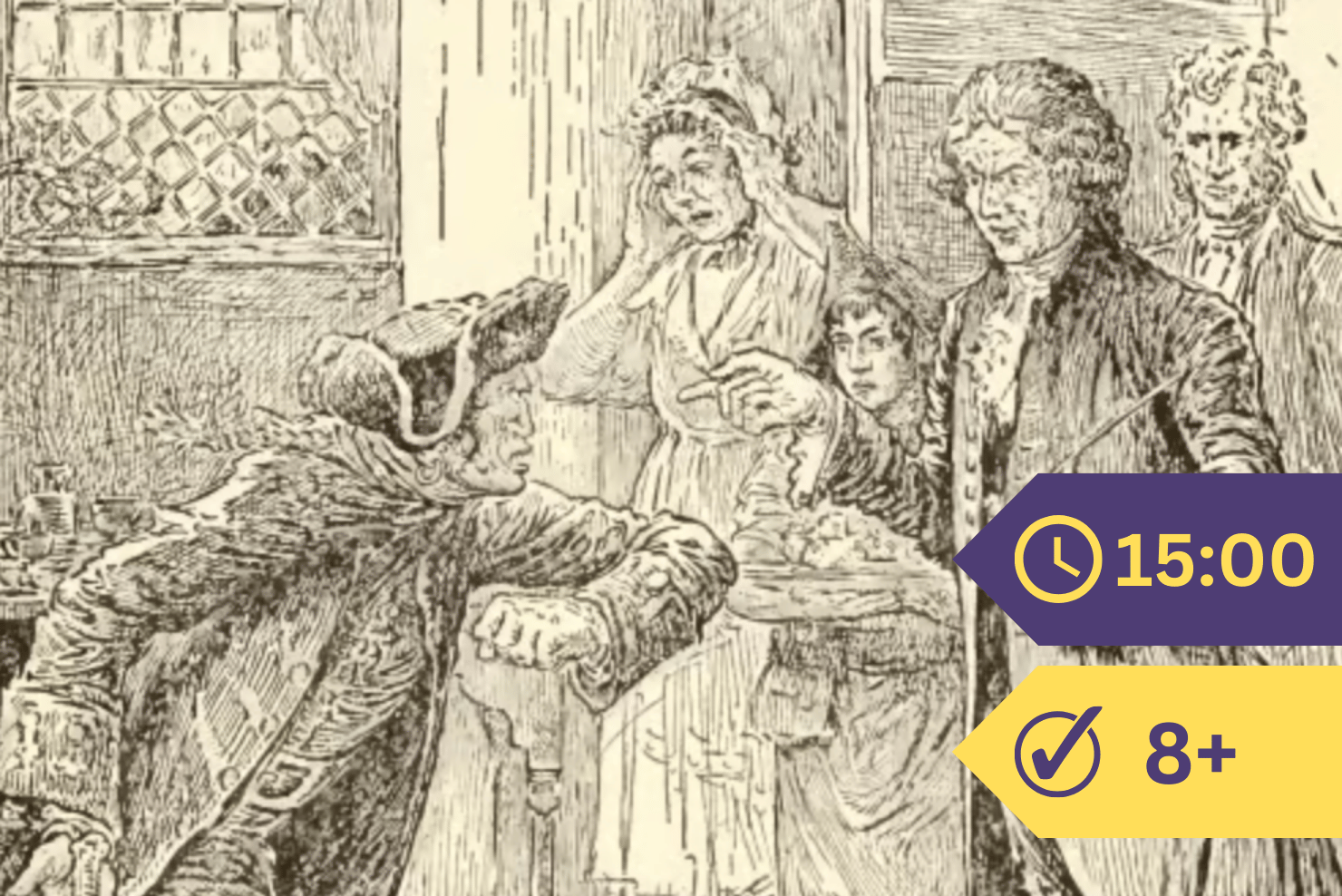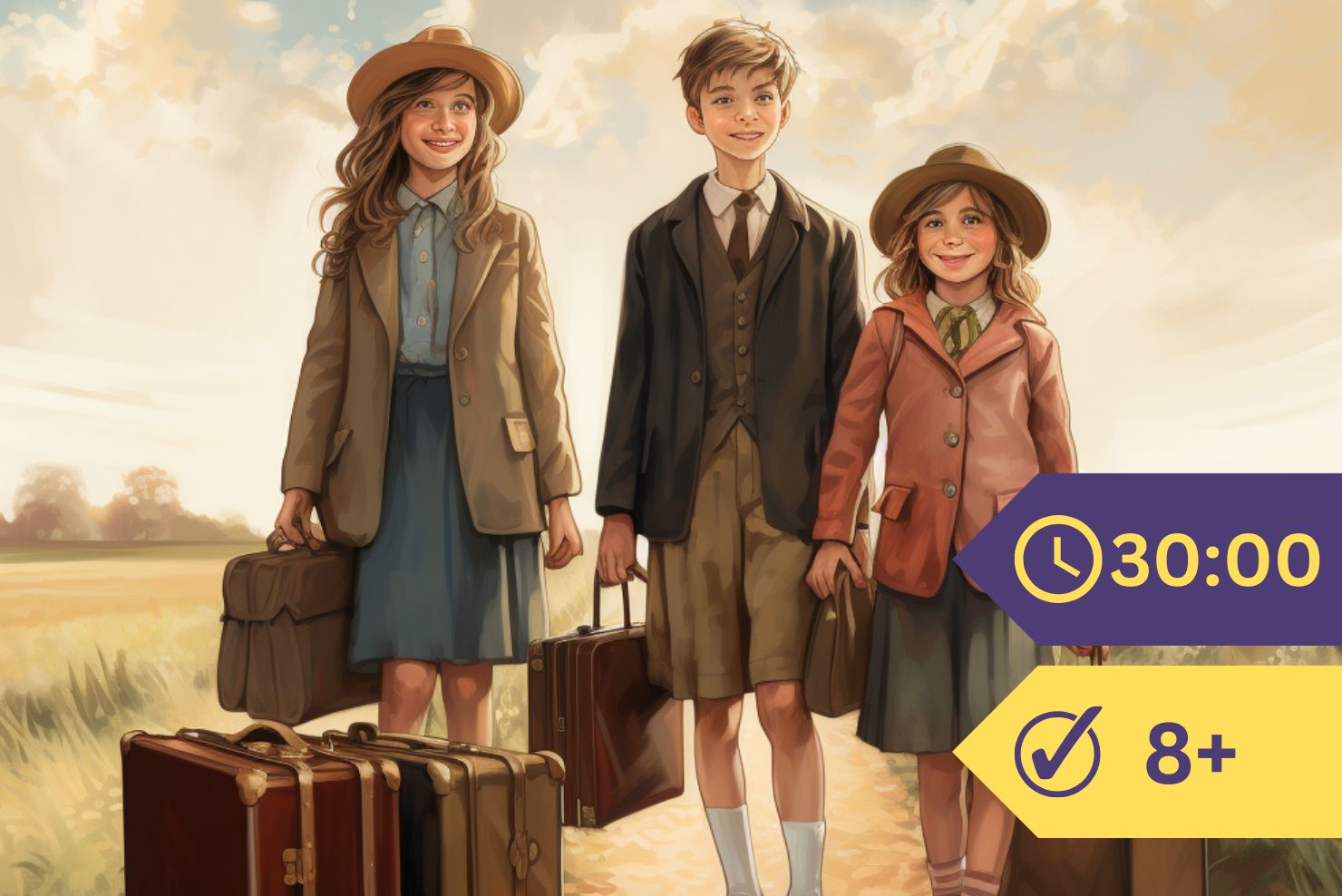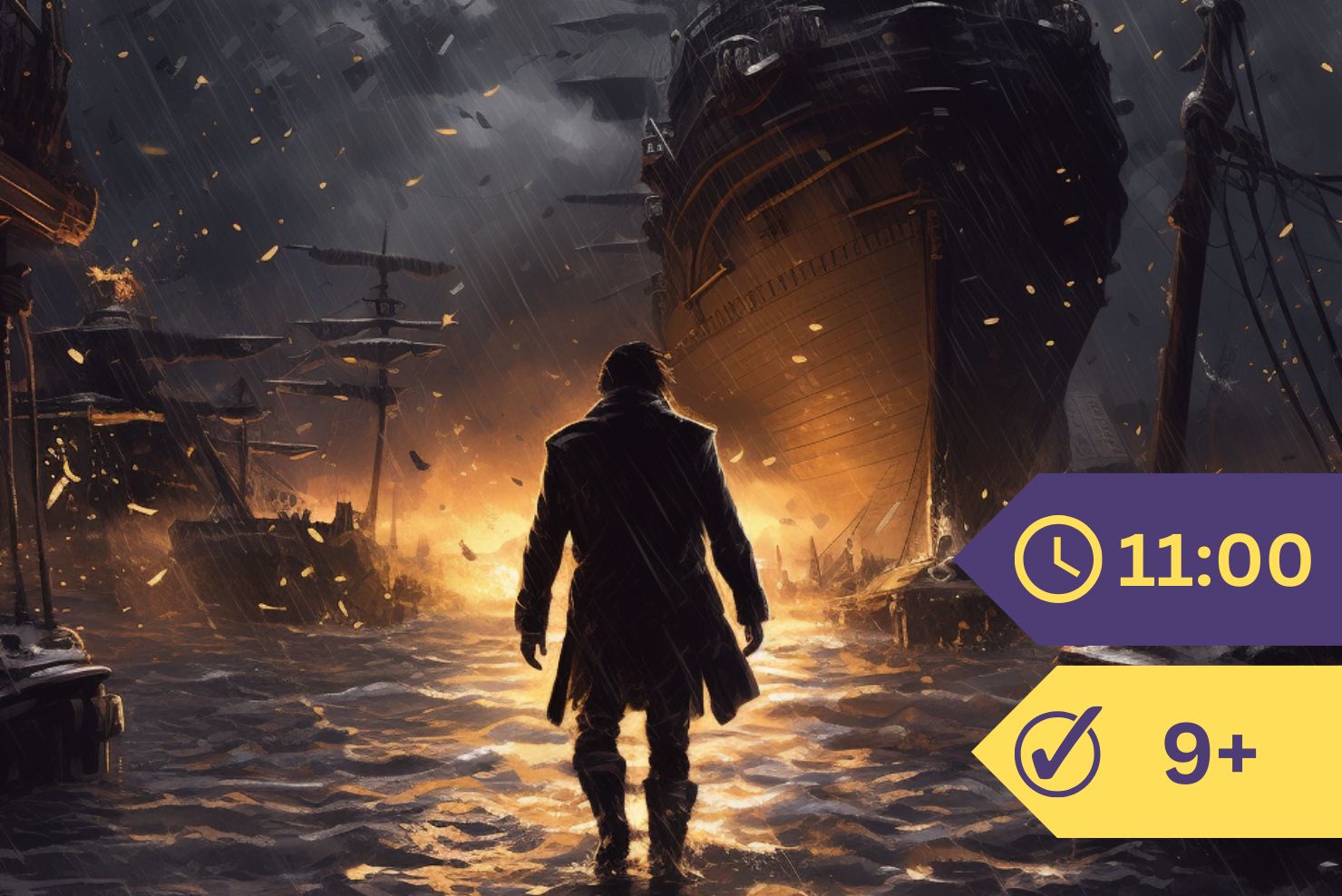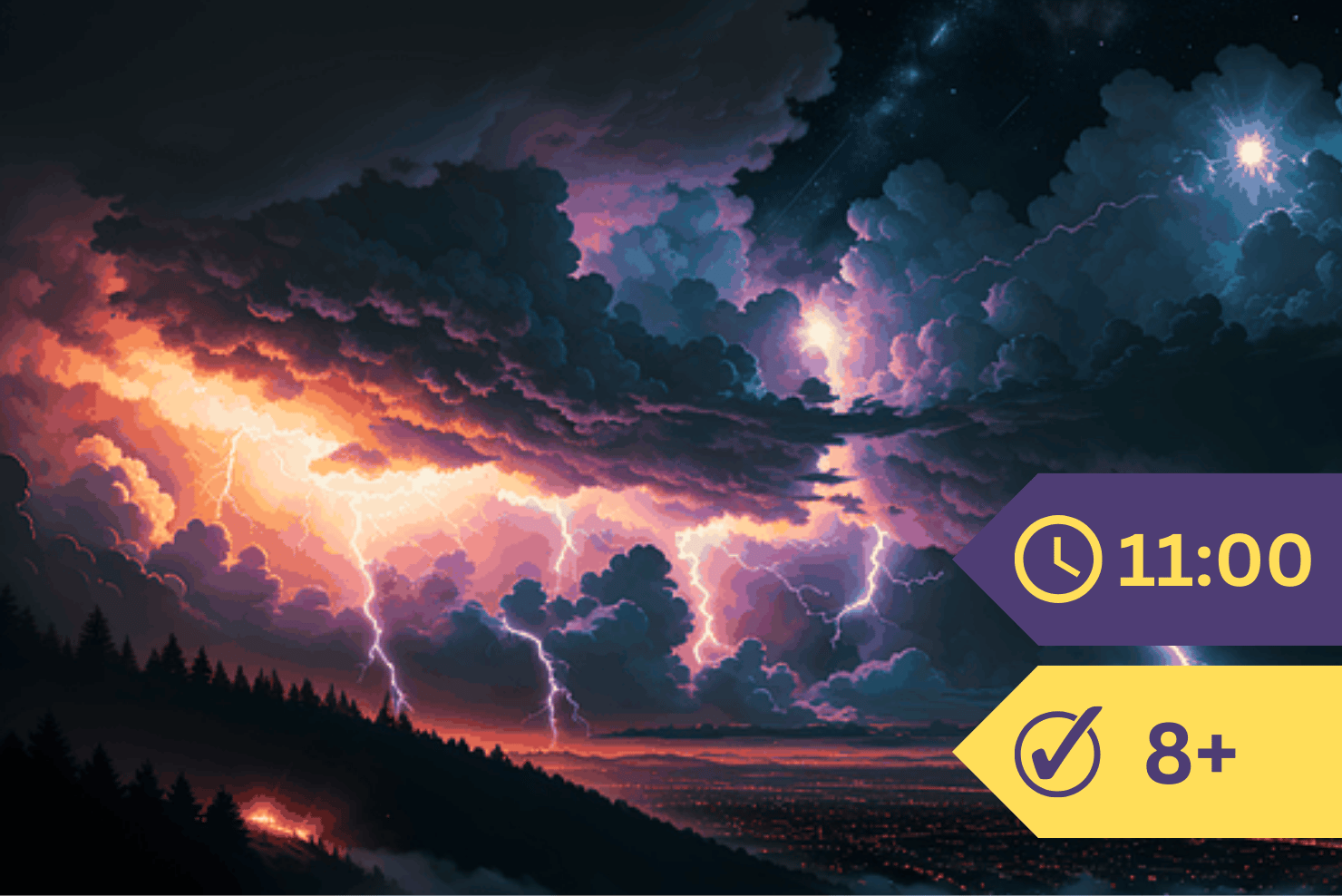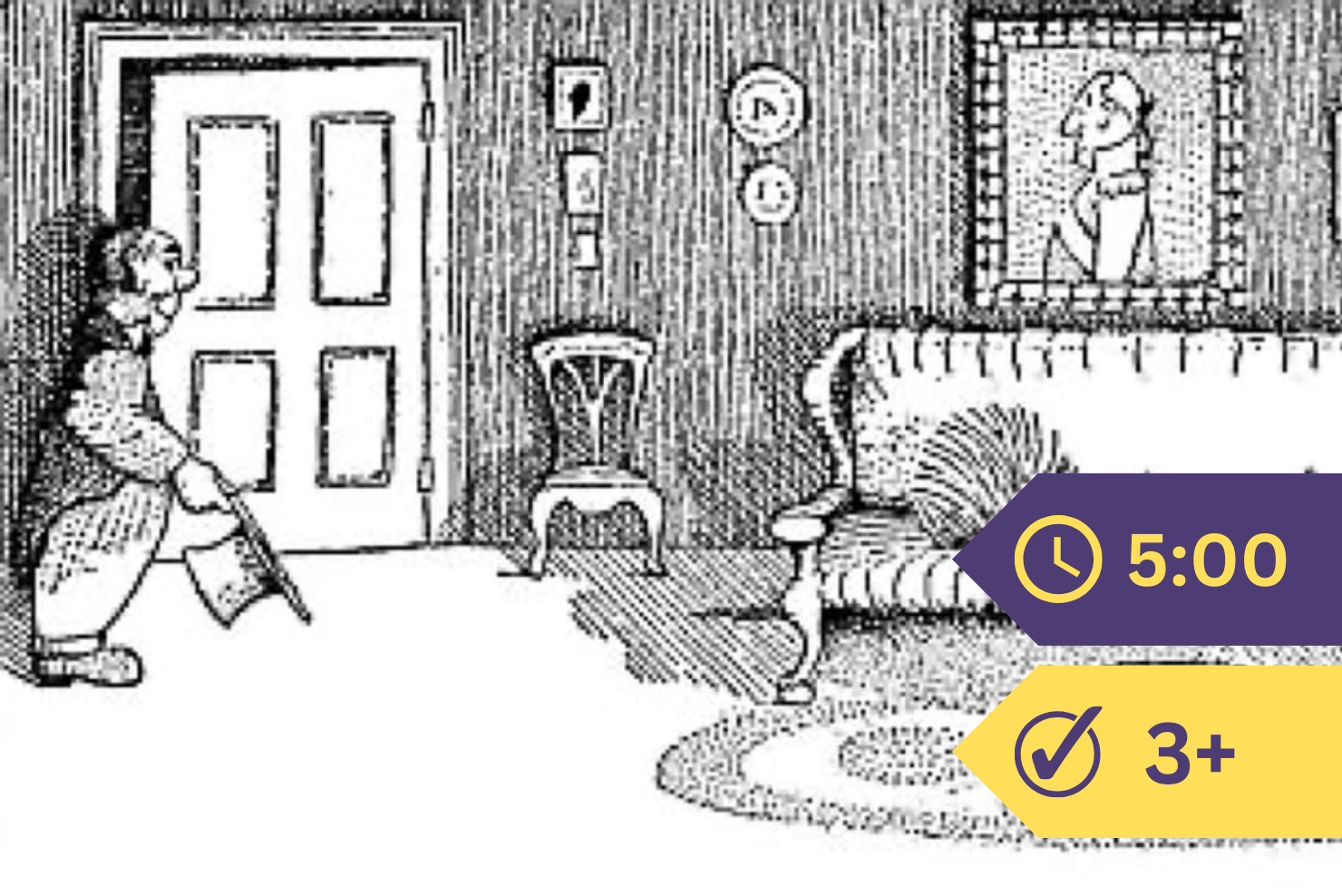After living in Brazil for almost four years and thriving on my plantation, I not only learned the language, but also built friendships with fellow planters and merchants in St. Salvador, our port. In my conversations with them, I often reported on my two trips to the Guinea coast, how I traded there, and how easy it was to sell small items such as beads, toys, knives, scissors, axes, pieces of glass, and the like. I bought gold dust, Guinea grains, and elephant tusks to take back to Brazil.
They listened very attentively to my trading stories. At the time, trading was not a craft that was practiced very much.
The next morning, a few merchants and planters came to me. They had thought long and hard about what I had told them and had a secret proposal to make. I had to swear to keep the secret. They told me that they planned to sail to Guinea with a ship. The question was whether I would like to manage the trading part on the Guinea coast. I would then get a settlement there with a good stock of goods.
I, who was born to take on challenges, could not resist the offer. I told them shortly and sweetly that I was going with all my heart if they would take care of my plantation during my absence. Even if I were to die. They all agreed, and an agreement was put in writing. I made a formal will to dispose of my plantation and belongings in the event of my death. I made the captain of the ship that had saved my life my heir. In case of my death, he would be obliged to send half of my possessions to England and keep the other half.
In short, I took all possible precautions to preserve my possessions and maintain my plantation when I went on my journey. Of course, if I had really been careful, I would never have left such a prosperous venture to make a dangerous sea voyage.
But I was always restless and blindly obeyed my fantasies instead of my reason. So when the ship was ready, I went aboard at a dark hour. I departed on September 1, 1659.
Our ship weighed about 120 tons, carried six cannons, and fourteen men, in addition to the captain, his mate, and myself. We had no large cargo on board, only toys suitable for our trade, as well as beads, pieces of glass, shells, and other small items. But also handy items such as knives, scissors, and axes.
On the day I boarded the ship, we set sail to the north with the plan to follow the entire African coast. Everything seemed to be going well. We had very good weather, although it was extremely hot. At the height of Cape St. Augustino, we lost sight of land and navigated as if we were headed to the island of Fernando de Noronha. We crossed the equator in about twelve days, when a violent tornado took hold of us. The wind was so terrible that we could only go with the wind for twelve days. Our fate was where the fury of the wind would take us. Of course, during these twelve days, I expected to be swallowed by the sea every day. Nobody expected to leave the ship alive.
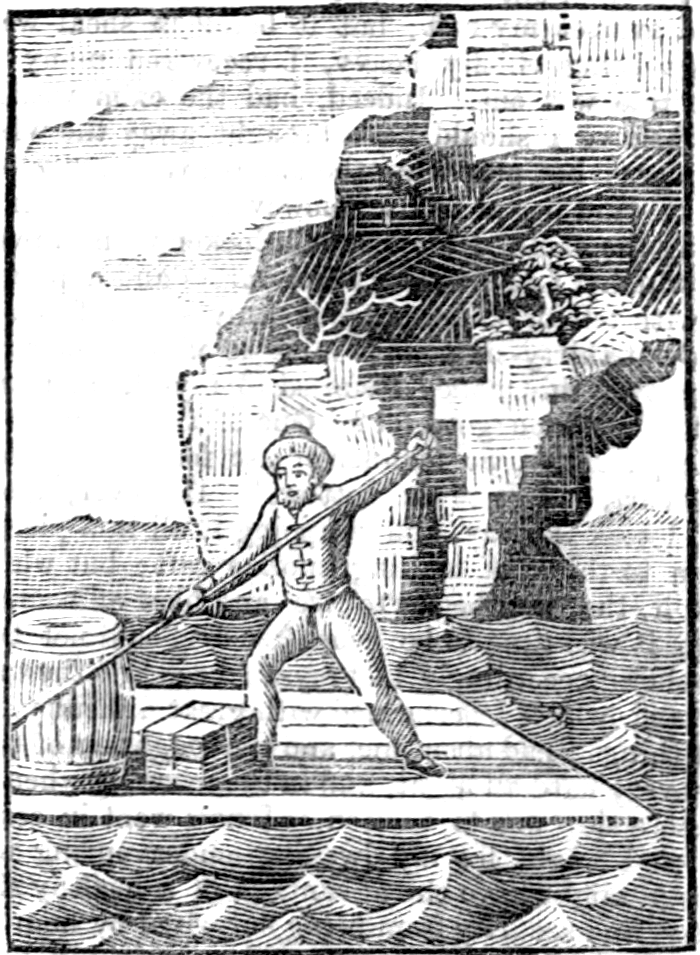
In addition to the terror of the storm, we had more bad luck. One of our men had died, and a man and a boy were swept overboard. Around the twelfth day, when the weather improved slightly, the captain made an observation as best he could. He discovered that we had arrived on the coast of Guyana. The captain consulted with me about which course to follow. The ship was leaky and damaged, and the captain wanted to return immediately to the coast of Brazil.
I did not agree with that plan. While we studied the maps of the American coastline together, we concluded that there was no inhabited land where we could take refuge until we reached the circle of the Caribbean islands. We decided to skip Barbados and stay at sea, hoping to sail to the next destination in about fifteen days. Our journey to the African coast could not continue without help.
With this change of course, we tried to reach one of our English islands where we could repair the ship. But our journey was determined differently; because a second storm came over us. This storm carried us to the west with the same violence. So we did not come close to the areas where we wanted to trade. We would be lucky if our lives were spared, and we would ever return to our own country.
In this emergency, while the wind still blew hard, one of our men called out one morning, “Land in sight!” We had just run out of the cabin to look outside, hoping to see where we were in the world, when the ship hit the sand, and in a moment, the sea broke over the ship. It happened in such a way that we expected to all be killed immediately. We did our best to protect ourselves from the foam and spray of the sea.
It is not easy for someone who has not been in the same situation to describe or understand the fear and anxiety of people in such circumstances. We didn’t know where we were. And we didn’t know if it would be an inhabited or uninhabited island. Since the wind was still very strong, we could not wait much longer. The ship could break in a few minutes unless the wind miraculously turned immediately. In short, we looked at each other and waited for death to strike at any moment. We tried to prepare ourselves for another world, if we even knew how to do that. But the ship was not yet broken, and the captain said the wind was beginning to decrease.
Although we thought the wind had died down a bit, we found ourselves in a terrible state because the ship had run aground and could no longer leave. We could do nothing but try to save our lives as best we could. We had another boat on board, but getting it into the water was doubtful. However, there was no more room for discussion, as we thought the ship would break up into pieces every minute. We had to hurry.
In this emergency, the helmsman of our ship grabbed the boat and with the help of the rest of the men, they tossed it over the side of the ship. When we had everything in the boat, we let go and went out into the wild sea. Because although the storm had diminished considerably, the sea was still terribly high along the coast. You could call it a wild sea, as the Dutch say.
Our situation was very grim. For we all saw clearly that the sea was so high that the boat could not escape, and we would inevitably drown. As for the sails, we didn’t have them, we couldn’t make them, and it wouldn’t have made a difference anyway. So we rowed with one oar towards the land, though with heavy hearts, like men going to the gallows. We all knew that when the boat approached the coast, it would be smashed to pieces by the force of the sea.
We didn’t know whether the coast was rocky or sandy, steep or shallow. Our only hope was that we would end up in a bay or at the mouth of a river. There we would have a good chance of being able to sail our boat into the shelter of the land. But as we got closer and closer to the coast, the land looked more terrifying than the sea.
After rowing about a mile and a half, a raging wave, like a mountain, came rolling towards us. In short, the boat capsized in one fell swoop and we were separated from the boat and from each other by the enormous wave. We were all swallowed up by the sea.
Nothing can describe the confusion of thoughts I felt as I sank into the water. For although I swam very well, I couldn’t free myself from the waves to take a breath. Until a wave had driven me to the coast and left me, after the wave had rolled away, on the land. Almost dry, but half-dead from the water I had ingested. I had so much presence of mind, as well as breath, that I saw I was closer to the mainland than I had expected. I stood on my feet and tried to go to the land as fast as I could, before another wave would come back and pick me up again. But I soon found out that it was impossible to avoid this. I saw the sea coming after me and I had no means or strength to fight it. My only task was to hold my breath and keep myself afloat, if possible. So by swimming and holding my breath, and steering myself as possible towards the coast, my greatest concern now was that when the wave came up, it wouldn’t bring me back to the sea.
The wave that came at me buried me immediately twenty or thirty feet deep in the sea. I felt that I was being carried to the shore with tremendous force and speed. I held my breath and tried to swim forward with all my strength. I was about to burst from holding my breath when I felt myself rising, and to my immediate relief, I noticed that my head and hands were above the water surface.
It was only two seconds, but it gave me breath and new courage. I disappeared under water for a while again, but not for long, and I made it. Then I discovered that the water was becoming calmer. I felt ground again with my feet. I stopped for a few moments to catch my breath, and then I pushed off with my heels and ran, with the strength I still had, further towards the shore. But this would not free me from the anger of the sea, which came after me again. I was lifted by the waves two more times. The last of these two had almost been fatal to me; because the sea slammed me against a piece of rock. This was so hard that it made me unconscious. I was completely helpless, but fortunately, I recovered a little before the waves returned. I held on to a piece of the rock and was able to withstand the waves. Because the waves were not as high as before, and because I was closer to the land, I took a run that brought me even closer to the shore. And with a last bit of running, I reached the mainland, where I could climb the cliffs and sit on the grass to my great relief, completely out of reach of the water.
I had now landed and was safely ashore. A few minutes earlier, I had not dared to hope for that.
I walked around on the shore and I thought of all my comrades who had drowned, and that not one soul was saved except myself. There was no sign of them anymore except for three of their hats, a cap, and two shoes.
I tried to see the stranded ship, which was barely possible, so far away and with so many foaming waves.
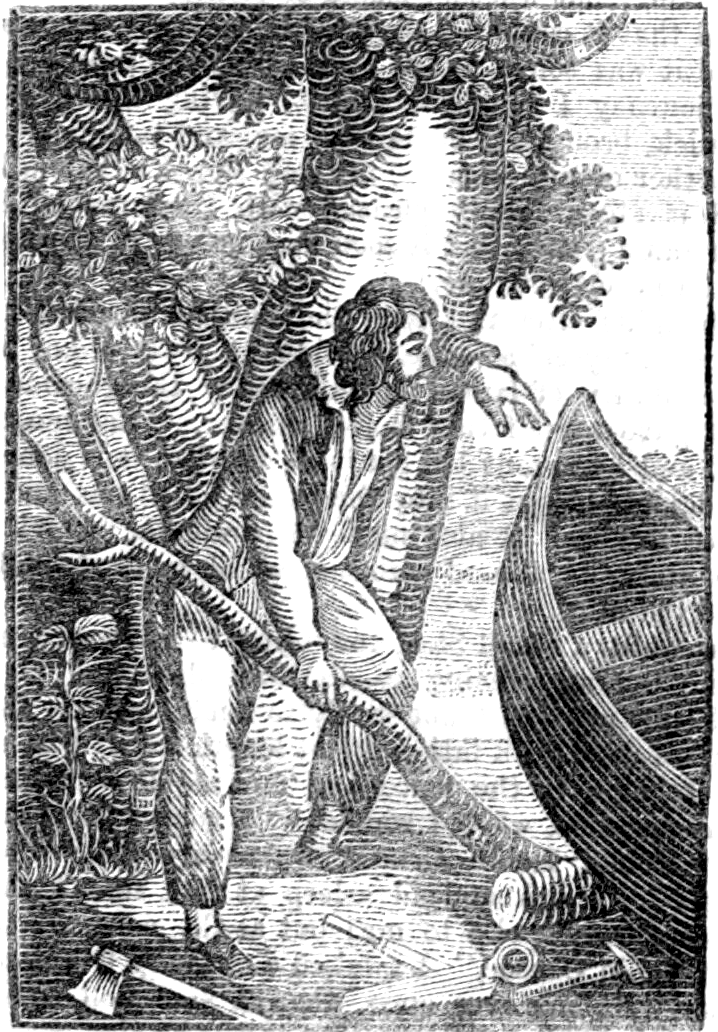
After I had comforted myself with the fact that I was still alive, I began to look around to see what kind of place I was in. But after my joy of being rescued, fear set in. I was wet, had no clothes to change into, no food or drink, or anything else as comfort. I saw no other prospect than that I would starve to death or be devoured by wild beasts. It tormented me terribly that I had no weapon to hunt an animal and kill it for my livelihood or to defend myself. In short, I had nothing but a knife, a tobacco pipe, and a little tobacco in a box. That was all. I was so afraid that I almost went crazy. When night came, I began to think with a heavy heart about what my fate would be if hungry beasts were in that land, as they always come out at night for their prey.
The only solution was the idea to climb up a thick, bushy tree, like a thorny fir. I decided to sit there the whole night and consider what kind of death I would die the next day, because I saw no prospect of life. I walked a long way from the coast to see if I could find fresh water to drink, which I was delighted to find. After drinking and putting a little tobacco in my mouth to appease my hunger, I went to the tree. I sat in it so that I wouldn’t fall out if I fell asleep. After cutting a short stick as a weapon for my defense, I took shelter in the tree. I was extremely tired and quickly fell asleep.

